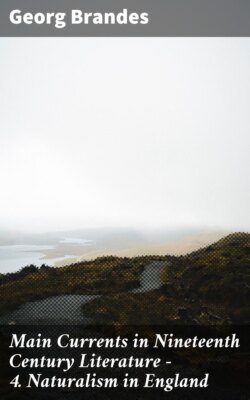Читать книгу Main Currents in Nineteenth Century Literature - 4. Naturalism in England - Георг Брандес - Страница 8
На сайте Литреса книга снята с продажи.
ОглавлениеThe writings of Shelley, Landor, Byron, and Campbell, have political equivalents in Canning's actions as minister. Indeed, Canning's speeches complement these authors' works. Castlereagh's invertebrate speeches and his dull, meagre official letters (the more meagre because, as a good business man of the school of Metternich, he preferred verbal communications) were at once succeeded by Canning's frank and glowing eloquence. Castlereagh, like his surviving colleagues of the ignominious Congress of Vienna, endeavoured, under the guise of evangelic peace, to maintain silence and darkness in Europe; Canning's speeches shone through the dark night of the Holy Alliance like a forest conflagration. The great idea that inspired him was the belief in the right of a people to free action. He died on the 8th of August 1827; but on the 10th of October of the same year was fought the battle of Navarino, which was, as it were, the last will of the dead man, and which to our generation is the political symbol of the awakening of the new spirit in Europe.[3]
[1] Emerson: English Traits, chap. xiii.
[2] Massey: History of England, i 59, &c.
[3] Miss Martineau: The History of England during the Thirty Years' Peace, I., II. Massey: History of England during the Reign of George III, I-IV. Thackeray: The Four Georges. Reinhold Pauli: Geschichte Englands seit den Friedensschlüssen 1814 and 1815. Emerson: English Traits.
